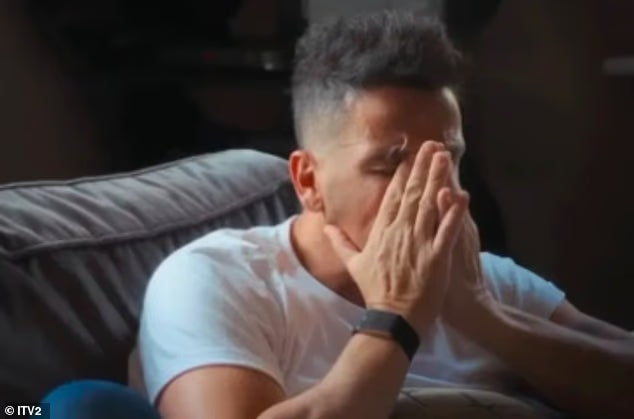
If you were a kid in the early 2000s, you probably remember Peter Andre charming your TV screen with his cheesy smile, deep tan, and endless supply of soft-focus romance. He was everywhere: glossy magazines, pop hits, reality shows. And then there was Katie Price, the glamorous, brash, reality-TV princess of the era. Together, they were tabloid gold. But beneath the glossy photos and fairytale headlines, a darker story was unfolding - and we’re only really hearing it now.
Yes, it turns out that Peter Andre was abusive toward Katie Price during their marriage, a fact she has been speaking about for years. And only now, decades later, are the full details starting to come to light. It’s shocking, not because abuse is rare, but because the culture back then allowed this behaviour to slip under the radar, wrapped in entertainment and “celebrity drama.”
Let’s be honest: if you watch some of the shows and interviews from that era, there was a kind of tacit acceptance of controlling, aggressive, and even coercive behaviour. It was packaged as “passionate love,” “rocky celebrity romance,” or “drama TV gold.” Women were expected to laugh it off, grin through the hurt, and carry on - often while the world gawked, judged, and gossiped.
Fast forward to today. The same behaviours that once made headlines would now make headlines for very different reasons: legal investigations, career-ending consequences, and social media backlash. In 2025, if a celebrity publicly demonstrated that kind of abuse, they wouldn’t just get a bad tabloid story - they’d risk being sacked, cancelled, and shunned in ways that were unimaginable in the early 2000s.
So what does this tell us? Firstly, it tells us that culture matters. What society tolerates - and even glamorises - shapes what victims feel able to report. Katie Price has spoken openly about living in fear and enduring abuse while the cameras kept rolling. Back then, the conversation around domestic abuse was quieter, more stigmatised, and riddled with excuses for men in the public eye. Women were blamed for “pushing the wrong buttons,” for “overreacting,” or for “saying too much.” Fast forward to now, and the tables have shifted. Public opinion is (slowly) on the side of the survivor, and the idea that abuse is something to be swept under the carpet is increasingly unacceptable.
But here’s the bitter pill: changing culture doesn’t erase the past. Katie Price’s experience shows that survivors often spend years carrying trauma, and society’s delayed reaction doesn’t help. Many women remain silenced by fear of ridicule, disbelief, or losing their livelihood. And let’s be honest - decades of entertainment media treating abusive behaviour as “quirky” or “passionate” didn’t just affect celebrities; it affected everyday women, shaping the way abuse was perceived in homes across the UK.
This is where education comes in. We can’t just wait for high-profile scandals to remind the world that abuse is real. We need to actively teach children, teens, and adults what abuse looks like - beyond bruises and black eyes. Abuse is emotional, financial, coercive, manipulative. It’s controlling your partner’s friendships, limiting their work opportunities, gaslighting them until they question their own reality. And yes, it’s still happening in homes across the country, every day.
The Peter Andre/Katie Price story is a cautionary tale. It’s a reminder that the shiny veneer of celebrity, wealth, or status does not protect someone from being an abuser—or from being abused. It also highlights how far we’ve come in holding abusers accountable, even if society is only slowly catching up. In the early 2000s, his actions may have been ignored, minimised, or laughed off. Today, they would likely mean career ruin and public condemnation.
At Dope Soul Village, we see these stories as more than just gossip fodder. They are teaching moments. They are opportunities to talk openly about domestic abuse, to dismantle the cultural myths that have protected abusers for too long, and to support survivors in finding their voices. It’s about saying: “This is not acceptable. Not then, not now, not ever.”
And let’s not forget the media’s role. We’ve all seen how TV shows, magazines, and tabloids have historically normalised harmful behaviour. The “reality” in reality TV often came at the expense of women’s safety, mental health, and dignity. Today, shows are (slowly) starting to shift. Networks face backlash, sponsors pull funding, and social media amplifies survivor voices. Change is happening - but only because people have decided enough is enough.
So, what’s the takeaway? Abuse was, for far too long, treated as entertainment. Society ignored it, minimised it, or even laughed at it. But times have changed. The Peter Andre scandal is not just a story about celebrities; it’s a mirror reflecting how we once normalised abuse and how far we’ve come in saying it’s unacceptable. It’s a call to action for all of us: to educate, to challenge, and to support survivors whenever and wherever we can.
Katie Price’s bravery in speaking out, even years later, reminds us that truth has a stubborn way of coming out. And while society’s reactions have evolved, the responsibility still falls on each of us to recognise abuse, believe survivors, and refuse to let culture - or celebrity -shield abusers from accountability.
Because here at Dope Soul Village, one thing is crystal clear: abuse isn’t entertainment, and survivors aren’t props for your ratings. Not then. Not now. Not ever.

